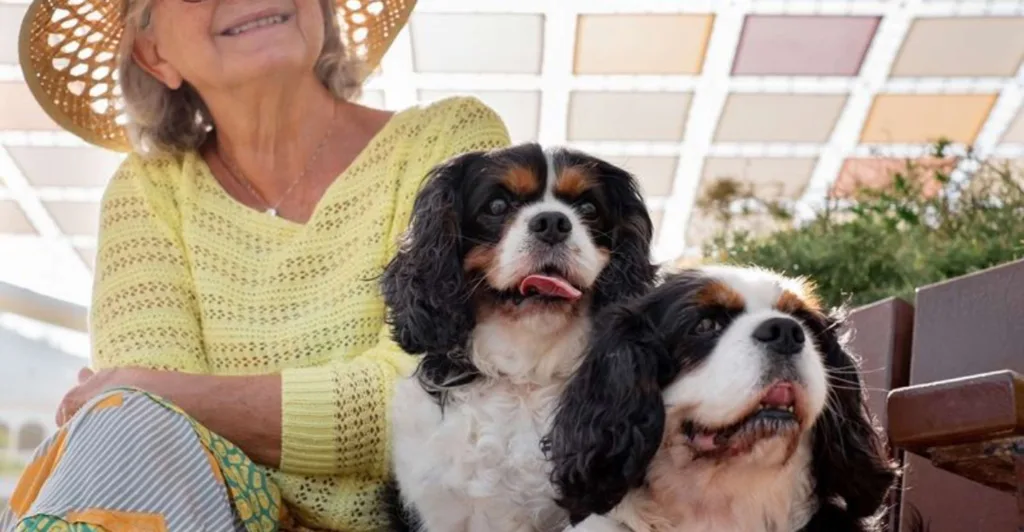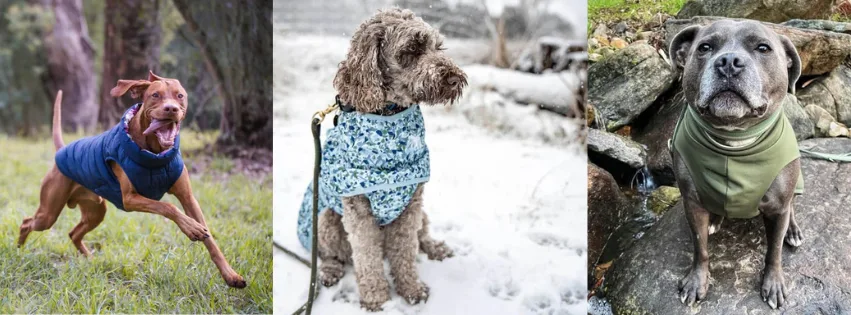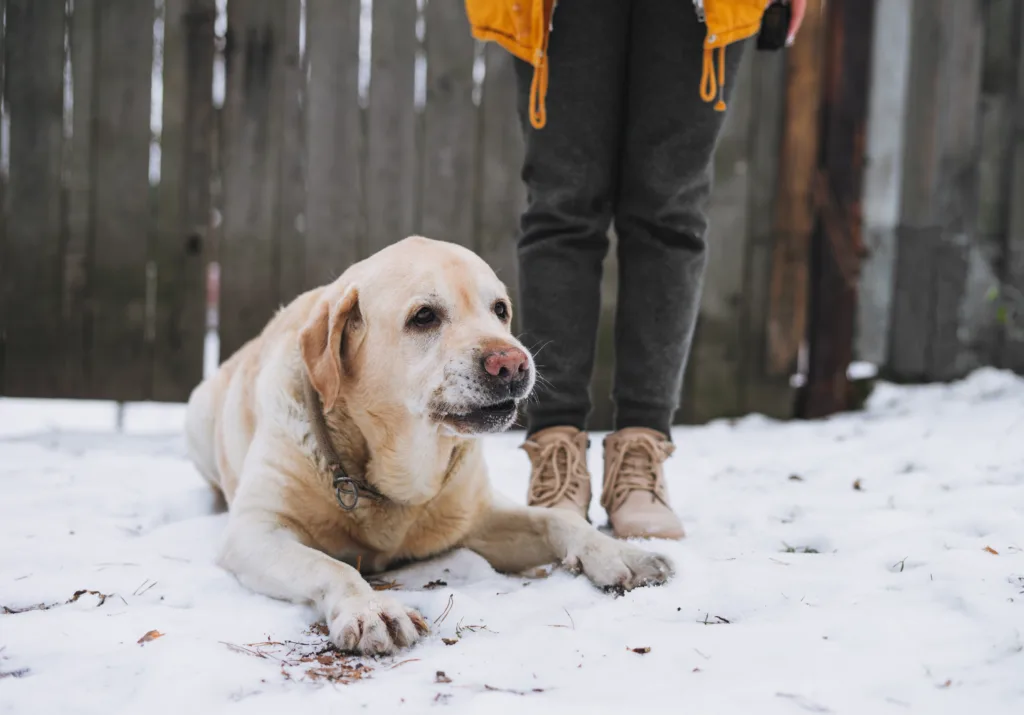The nights and early mornings are already hinting at the chilly winter ahead. Most of us are starting to feel the change too.
Stiff joints are back and so is the reluctance to go outside. Staying tucked under the doona is so much better. But just as we feel the chill, dogs are similarly affected by the cooler weather.
How cold weather affects dogs and senior dogs
Humans know the drill and can adapt to chilly weather effortlessly. It’s the time when we layer up in warm clothes, use the heater more than usual, and coop up indoors to avoid the cold.
These help us get by comfortably and safely during the colder months. Sadly, it’s not the same for our senior pets.

Dogs rely entirely on us to provide warmth, comfort, and care. They need us more, especially as they age. The same dogs who used to run circles around the house now prefer quiet corners and gentle strolls. Age has changed their energy, but not their spirit.
Senior dogs are particularly vulnerable in cold weather. Joints often become stiff, metabolism slows down, and their immune system weakens.
Some dogs even experience reduced eyesight or cognitive decline. This can make it difficult for them to find cosy spots or respond appropriately to their environment.
Supporting senior dogs during winter
It’s a privilege and a huge responsibility to care for senior dogs. As they grow older, comfort becomes even more essential.
The quiet moments of care we give may look small but carry great meaning. Here are some helpful ways in caring for senior dogs during the colder months:
1. Allow easy indoor access
While it may be cold and chilly, sometimes it’s not enough to stop dogs from exploring. Doggy doors are now equipped with advanced technology, giving your dog the option to come inside and get cosy when the weather turns cold.
2. Schedule a vet check-up
Make sure your dog is ready before winter fully arrives. Drop by your vet for a pre-winter checkup. A thorough examination to check your dog’s joints can help them get through the chilly season easily. Your vet may also recommend necessary supplements or medicines for pain relief.
3. Continue gentle dog exercises
Snow is falling but we still need to keep moving. Consistent movement supports circulation and muscle strength for your senior dogs. Adjusting your dog’s winter training with low-impact activities like short walks or hydrotherapy, which uses temperature-controlled water, can be incredibly beneficial.
4. Create a comfortable resting spot
Senior dogs deserve a throne, or at least a comfy space they can lie in. A bed that’s warm, cosy, and not sitting on a freezing floor. Make it dry and slightly raised to keep cold at arm’s length. Orthopedic memory foam is a great addition too. It adds an extra layer of comfort for achy joints.
5. Dress for the weather
Cold weather can be especially problematic for older dogs who suffer from stiff joints, as the low temperatures can cause muscles to tighten up and increase pressure when they’re walking. Their bodies are just not as efficient at heat regulation as young healthy adult dogs.

6. Keep their mind active
Caring for senior dogs in the frosty weather doesn’t have to mean less activity. There’s still plenty of fun you can do indoors. Brain games, scavenger hunts, or a fortress keeps your senior dog’s mind engaged. The mind and body are connected! It’s always best to be fit not just on the outside but on the inside too.

Snug as a bug in winter
While these are just a few ideas to improve your senior dog’s winter experience, there is no limit to what you can do for them. Some even warm the coat in the dryer for a few minutes to keep their dogs feeling warm and toasty.
By making small adjustments to their routine, we can help them enjoy their best, most comfortable years, surrounded by warmth, love, and plenty of treats.
##
Post by Laura V © for Knose Pet Insurance
Laura V is deeply dedicated to enhancing the lives of dogs beyond recognising their thoughts and feelings. Laura’s approach goes beyond traditional training. She integrates behavioural medicine, education, and psychology to foster long-lasting bonds between dogs and their owners. Her muse, Chester, has inspired her to live purposefully. Laura aims to share insights and guidance to help others provide the best care and companionship for their dogs.


